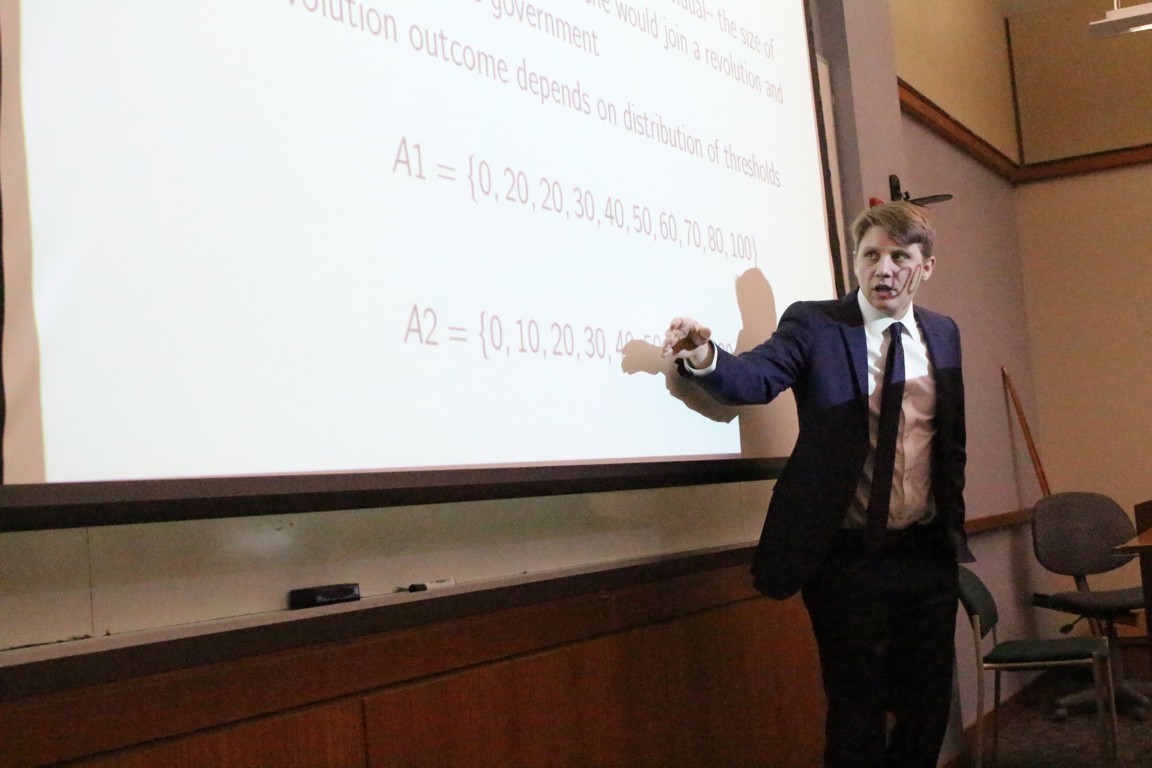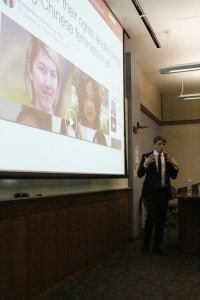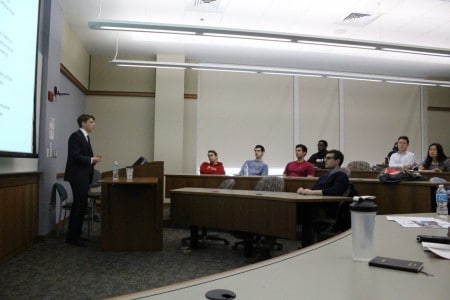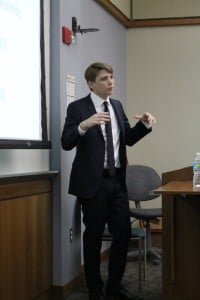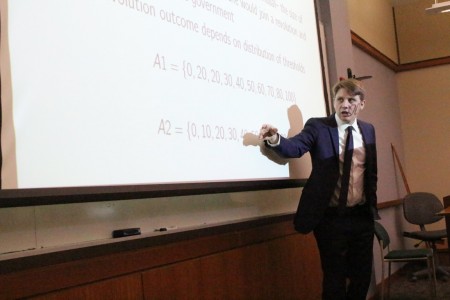- Truex presents on the state of democracy in China related to his research. Photo by Ali Davis
- An audience of faculty and students participate in the lecture with comments and questions. Photo by Ali Davis
- Photo by Ali Davis
- Treux explains a concept after being asked for clarification. Photo by Ali Davis
By Kyeland Jackson —
Rory Treux, an assistant professor on politics and public affairs from Princeton, said China may be one of the most oppressive authoritarian regimes in the world.
Treux presented his findings during a seminar on Feb. 24. The seminar, part of the Asia In Focus Speaker Series, discussed the nature of repression in China.
Treux began the talk by explaining what he called the “political terror” scale. The scale categorized nations on a ranging from one to five (one being the least repressive and five being the most), based on rates of citizen repression. Repression is anything from warnings, up to incarceration and murder to enforce political ideals.
The U.S. categorized as one. China, under its current president, Xi Jinping, rated a four.
The People’s Republic of China, China’s ruling regime, has an historically oppressive history. Under the regime’s first ruler Mao Zedong, Treux said the nation was a five on the political terror scale. Zedong’s rule was extremely repressive, and oversaw the deaths of “20 to 50 million people because of his ideological goals,” Treux said.
Thinking a correlation may exist, Treux created a graph looking for a relationships between politically sensitive events and repression. The rates for Jinping, reflected spiked rates in response to his rule.
“Jinping is one of the most repressive leaders we’ve seen in China in the last three decades or so,” Treux said.
The rates of repression were lowest under the previous ruler, Hu Jintao, who was responsible for China’s booming economic growth. They drastically increased with Jinping’s 2013 inauguration – multiple citizens under his regime have been jailed or incarcerated for speaking out against the government.
An undergraduate student who criticized the government online was jailed. She was sentenced to solitary confinement for a year before being released. Her government criticisms stopped after that.
Treux ended the presentation suggesting further plans for his research and thoughts on repression nationwide.
Political science major Brinton Logan was surprised to learn of Jinping’s repressive nature. Logan said the Asian perspective of governance was new and insightful.
“Our politics don’t apply to others all the time,” Logan said. He said many try to apply Western democracy to other nations, but it’s not always best to do so.
U of L alumnus Frank Jemley attended to learn more about China as well, and stressed China’s importance to the U.S.
“It’s (China’s) internal and international actions that are critical issues for all of us, because of it’s economic sway and it’s actions in the region,” Jemley said.
Andrew MacDonald, a post-doctoral associate at the Center for Asian Democracy, said talks like these are important for students to attend. China, MacDonald said, has achieved urbanization at alarming rates, matching how the U.S. industrialized. He said the most important parts of Treux’s talk regarded China’s government responses to threats.
“His particular point was understanding when the Chinese regime feels most threatened, which is around the times of major meetings, leadership changes, any event that will draw publicity,” MacDonald said.
Understanding Chinese government is difficult because of the high rates of repression. MacDonald believes researchers like Treux are trying to fix this, spreading what info they do learn of how it works to students and other researchers.
“They say it’s like the blind man feeling around the elephan. We kind of just know little bits and pieces here,” MacDonald said.
Richardson Dilworth of Drexell University will lead the next speech in the series, “China’s Urban Future.” It will be held March 23 in Ekstrom w104 at 12 p.m.
Photo by Ali Davis / The Louisville Cardinal

